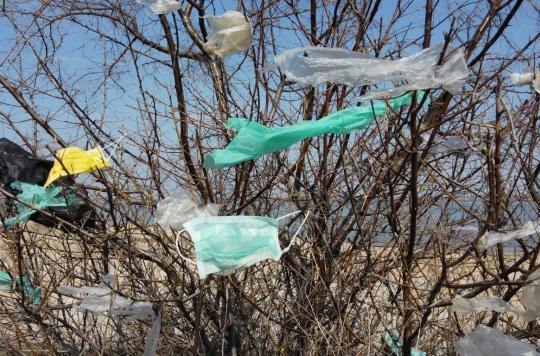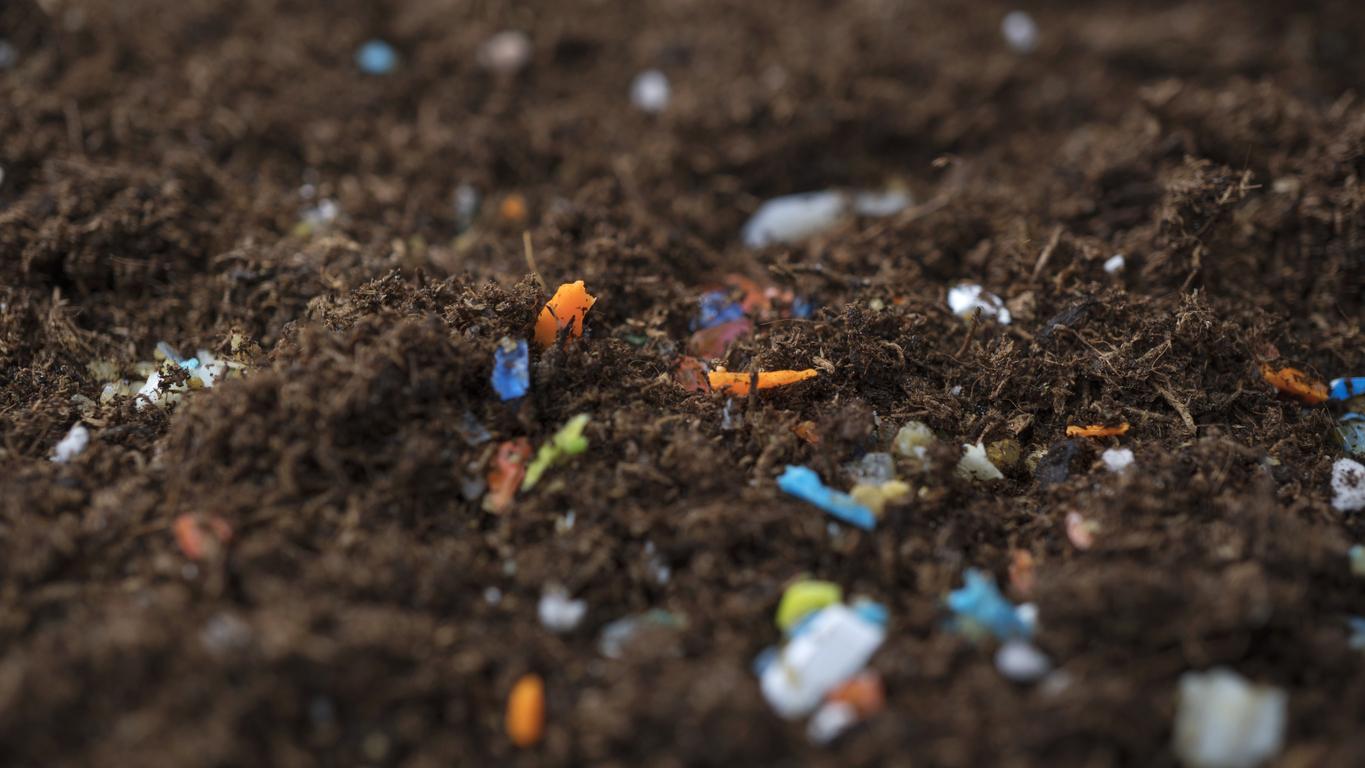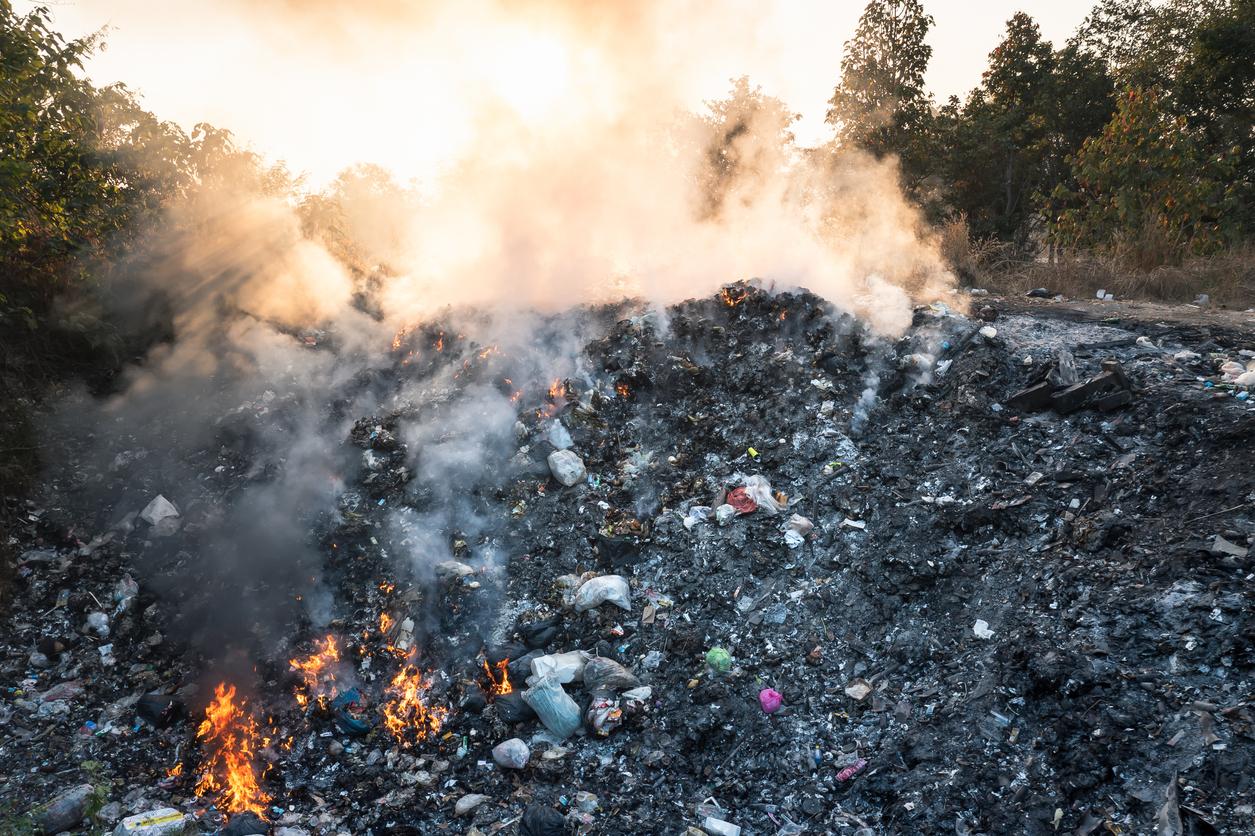Since the start of deconfinement on May 11, plastic masks have been thrown haphazardly in the streets, parks and forests. In addition to the danger to the environment, this lack of civility also poses a high risk of contamination to waste collection agents and sweepers.

- Since the beginning of the deconfinement, many people carelessly throw their plastic mask on the ground.
- This lack of civility poses a health risk to cleaners and is dangerous for the environment.
- A disposable mask takes up to 450 years to disintegrate in nature.
- Researchers are working to recycle the masks.
If the coronavirus health crisis has allowed the depollution of cities around the world due to the stoppage of traffic during confinement, the production of disposable plastic objects to protect against the coronavirus, such as single-use masks and gloves, exploded in recent months. Even more worrying, in France, since the start of deconfinement on May 11, these utensils have been thrown randomly in the streets, parks or even forests. In addition to the danger to the environment, this lack of civility also poses a high risk of contamination to waste collection agents and sweepers.
Indeed, according to a study published in The Lancet in early April, traces of SARS-CoV-2 could be detected for at least seven days on the outer surface of a protective mask and up to four days on its inner surface. Waste collectors and sweepers are therefore the most exposed. In Paris, “my colleagues collect masks all day”deplores in particular Régis Vieceli, departmental secretary of the CGT at the FTDNEEA, the Waste treatment sector cleaning water sewers sanitation, with France Blue Paris. Pedestrians are also at risk, he warns. “Imagine a child playing with a mask on the floor and putting his hand in his mouth, he could be contaminated.
“We should give them brooms. They do not deserve masks these people”were indignant with the Eboueurs de Paris on their Twitter account on Thursday, May 14, accompanying their post with photos of masks thrown on the ground or hung on poles.
We had to distribute brooms to them, these people don’t deserve masks. pic.twitter.com/Xq8VDshOrC
— Paris garbage collectors (@eboueursdeparis) May 14, 2020
Up to 450 years to decay in nature
As for the environment, a surgical mask takes up to 450 years to disintegrate in nature, just like a plastic bag or a tampon. Indeed, the masks are mainly made of non-woven polypropene, a petroleum-derived compound found in sanitary napkins, in certain bags or in disposable diapers. Without counting the steel of the nose bars and the rubber bands which are used to maintain them.
What’s more, throwing a mask in a gutter also disrupts wastewater treatment, recalls the Water Information Center, which warns against “the disinfectant wipes in the toilet”. “Contrary to popular belief, most wipes do not fall apart like toilet paper. They end up clogging the pipes of the sanitation networks and hindering the proper functioning of the treatment plants”, is it explained in a press release. “Carelessly thrown masks in the gutters cause the same type of disturbance. The accumulation of this new kind of waste requires many avoidable interventions to unclog clogged pipes and restore the optimal performance of wastewater treatment facilities”, it is specified. In conclusion, “our toilets and our streets are not trash cans, so let’s not throw our wipes or masks there anymore. The health crisis must not make us forget to preserve our wastewater treatment system, and therefore our environment, with a simple civic and solidarity gesture.
Also, to avoid contaminating others and polluting, the Ministry of Ecology gives a list of recommendations to follow when getting rid of masks, handkerchiefs, wipes or gloves. First, dispose of them in a dedicated, heavy-duty trash bag that has a functional closure system. Then, when this bag is full, it must be carefully closed and kept for 24 hours before being thrown in the bin for “non-recyclable” household waste, ie the gray bin. These rules are to be followed whether you are sick or not.
ANSES and the Ministry of Health are evaluating several techniques
In order to alleviate the environmental crisis which is beginning, in the hospital environment, a circuit has recently directed this waste to incineration and separates the Waste from health care activities with infectious risks (DASRI) of Waste similar to household waste (DAOM). “The management of the DASRI is a specific activity requiring specific equipment, specific training, dedicated circuits, disinfection of the bins etc..”explains the Ministry of Ecology to France info.
According to the media, ANSES (National Agency for Food, Environmental and Occupational Health Safety) and the services of the Ministry of Health are in the process of evaluating several techniques “such as ethylene oxide sterilization, hydrogen peroxide decontamination, irradiation with gamma or beta rays etc” . This research should make it possible to open “the way to the implementation of recycling, at least for large users of masks (healthcare establishments, large companies).”
A French consortium is working to recycle disposable masks
At the same time, several studies are underway around the world to try to recycle surgical masks and FFP2. In France, a consortium of around twenty teams formed by the CNRS and the CEA (Atomic Energy Commission) named French Reuse is working on trying to recycle masks. “we wondered if it would be possible to imagine a protocol to recycle them. Precisely to eliminate the viral load after a first use while guaranteeing the maintenance of their level of performance”explains Professor Philippe Cinquin in a interview with the Journal du CRNS.
“Several decontamination methods are tested by other laboratories via ionizing radiation, ultraviolet rays and we physicists are responsible for seeing whether these aggressive methods degrade the mask or not.develops Frédéric Dionnet, Director General of the Regional Center for Innovation and Technology Transfer (Certam), which participates in the consortium, withNews-Normandy. “The idea is to create a local solution that the doctor or nurse could apply quickly via a small UV oven or a decontaminating plastic bag, which, in a few minutes, could make the mask usable again”, he says. If the results are promising, “the process will have to be validated by the various bodies before its implementation”.
“Researchers are currently trying to refine and confirm these preliminary results. Their goal is now to quickly establish processing conditions that are valid for all surgical and FFP2 masks, regardless of their manufacturer.”details the site of IMT Atlantic, an engineering school which also participates in the consortium. Ultimately, this decontamination process could also be of interest to sorting centres. The objective is to establish a recycling channel while preserving the health of the agents.
.
















